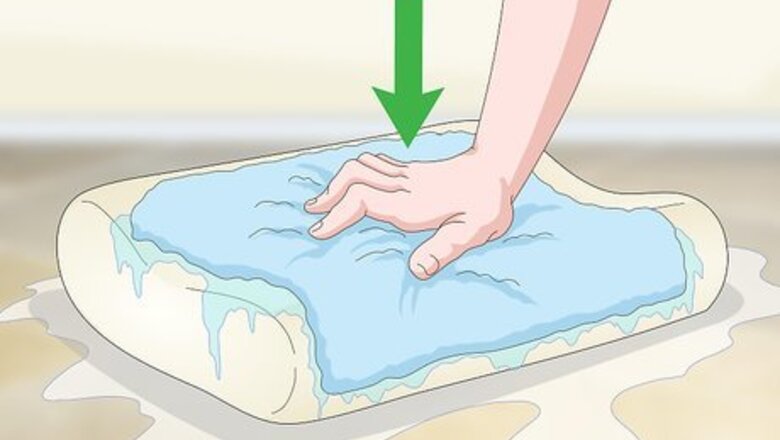
views
Cleaning up Spills
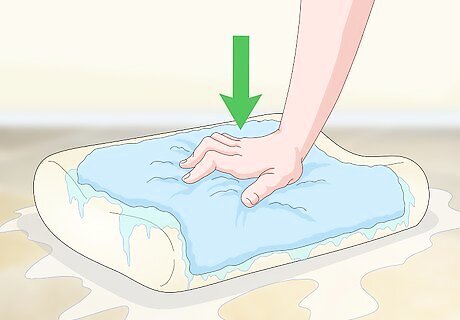
Soak up as much of the spill as possible with a bath towel. Press the towel over the wet memory foam and hold until the towel is saturated. Repeat the process until there isn't any more liquid to be soaked up. A bath towel is best for high absorbency, but you can also use paper towels. If the spill can stain, make sure to use a towel that you don't mind getting stained and dirty. Never twist or fold memory foam to wring out liquid--this can damage the foam's structure. Always press gently to soak up any liquid instead.
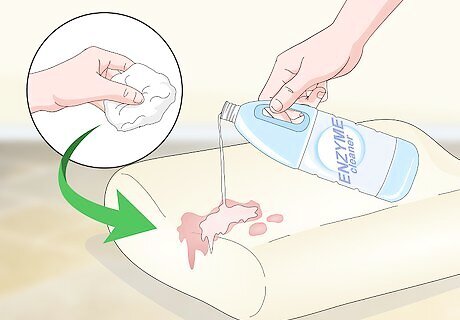
Use an enzyme-based cleaner for blood stains, food stains, or beverage spills. Enzyme-based cleaners organically dissolve and remove these more stubborn spills. They're also safe to use with memory foam and won't damage the foam's structure. Follow the instructions that come with your cleaner and soak up any excess liquid when you're finished. Generally, you should pour some enzyme-based cleaner on the spill, let it sit for 10-15 minutes, then blot up as much cleaner as possible. Although some suggest using hydrogen peroxide to break down bloodstains, this is inadvisable. Hydrogen peroxide will damage the memory foam's surface.
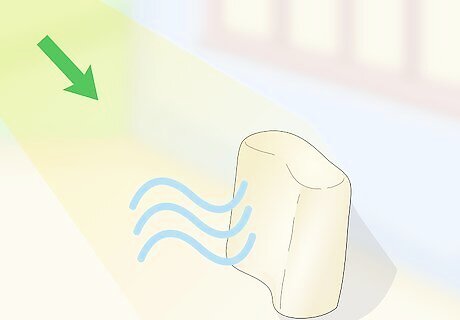
Set the memory foam product out to dry. Leave the memory foam in a bright area with good air circulation. In order to avoid mildew and mold, let it dry completely before using it. Do a touch test to determine if the foam is fully dried. Your mattress should also feel much lighter when it's dry. If it still feels heavy around the washed area, it probably still contains some trapped water.
Removing Stains
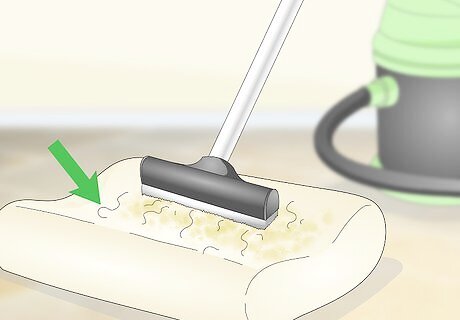
Vacuum first to remove dust, hair, and lint. Use a soft brush extension and a low power setting when running the vacuum over memory foam. Clean as much extra debris as possible to keep it from getting ground into the mattress when you clean.
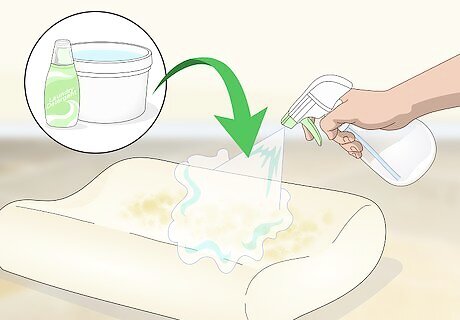
Spray the stained area with a laundry detergent and water solution, then blot. In a spray bottle, combine 4 fluid ounces (120 mL) of laundry detergent and 8 fluid ounces (240 mL) of cool water. Shake well and make sure that the two ingredients are fully mixed before spraying. Spray the stain and gently soak up the liquid with a towel. Keep repeating this until the stain disappears. Since you may not be able to completely remove all of the detergent, make sure to use a gentler, unscented formula. Look for detergents labeled “hypoallergenic.”
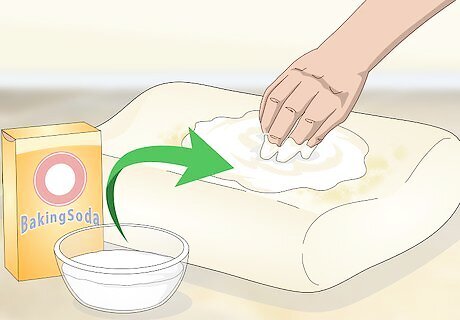
Soak stubborn stains with a baking soda solution. Mix together 1 part baking soda and 2 parts water until it forms a milky white liquid. Work the solution into the stain using circular hand movements and leave it to soak for half an hour. Use a slightly damp cloth to remove the solution. Soak up any remaining liquid with a bath towel.
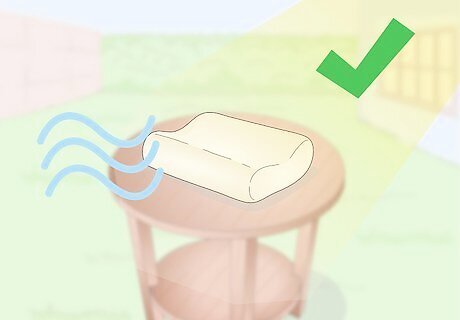
Let the memory foam dry completely. Set the memory foam product in a bright, open space to dry before using it. Make sure it is completely dry to reduce the risk of mold and mildew. Direct sunlight will help dry the foam more quickly and dispel odors.
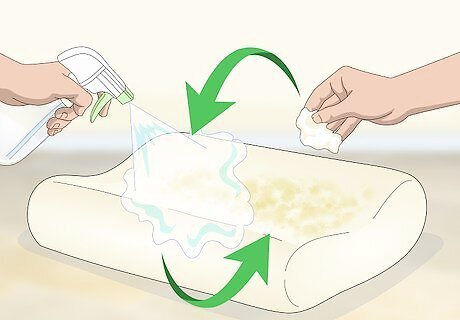
Repeat the process if the stain is stubborn. Some stains may need several rounds of washing to fully disappear. Let the mattress fully dry after each time you use the detergent solution followed by the baking soda paste.
Removing Odors
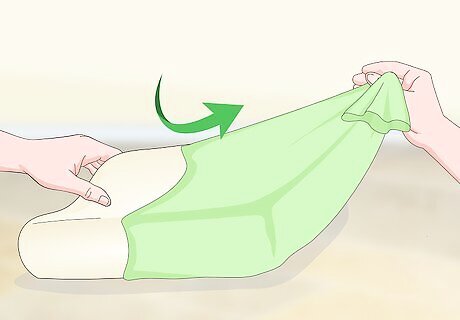
Remove any covers or cases to wash separately. You'll want to treat the direct surface of the memory foam to remove odors trapped inside. Using covers and cases helps protect your memory foam and reduce the need for washing it directly. Make sure to wash your covers and cases regularly.
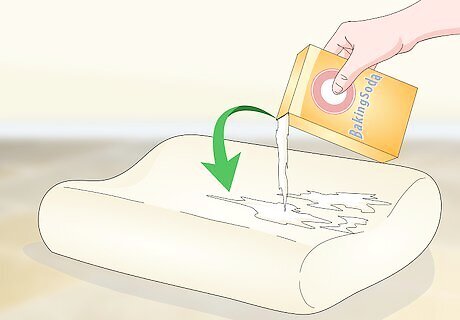
Sprinkle baking soda over the surface. Cover the surface of the memory foam in a thin layer of baking soda. Do this in an area where the memory foam product won't need to be moved around, such as a table or floor.
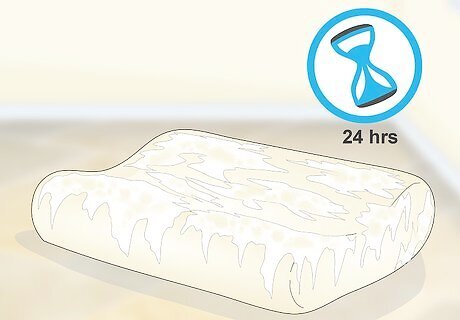
Let the baking soda sit for 24 hours. This will soak up odors and moisture trapped in your memory foam. Don't disturb the baking soda while it sits--cleaning up loose powder can be difficult.
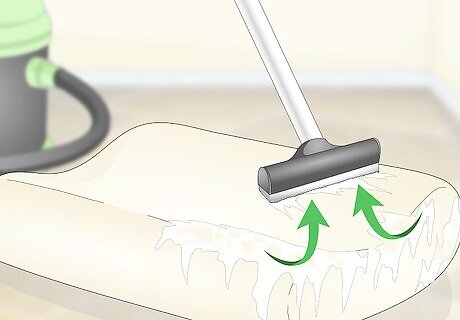
Vacuum up the baking soda. Use a soft brush extension and a low setting to gently remove the baking soda. This will leave you with fresh, odorless memory foam!




















Comments
0 comment